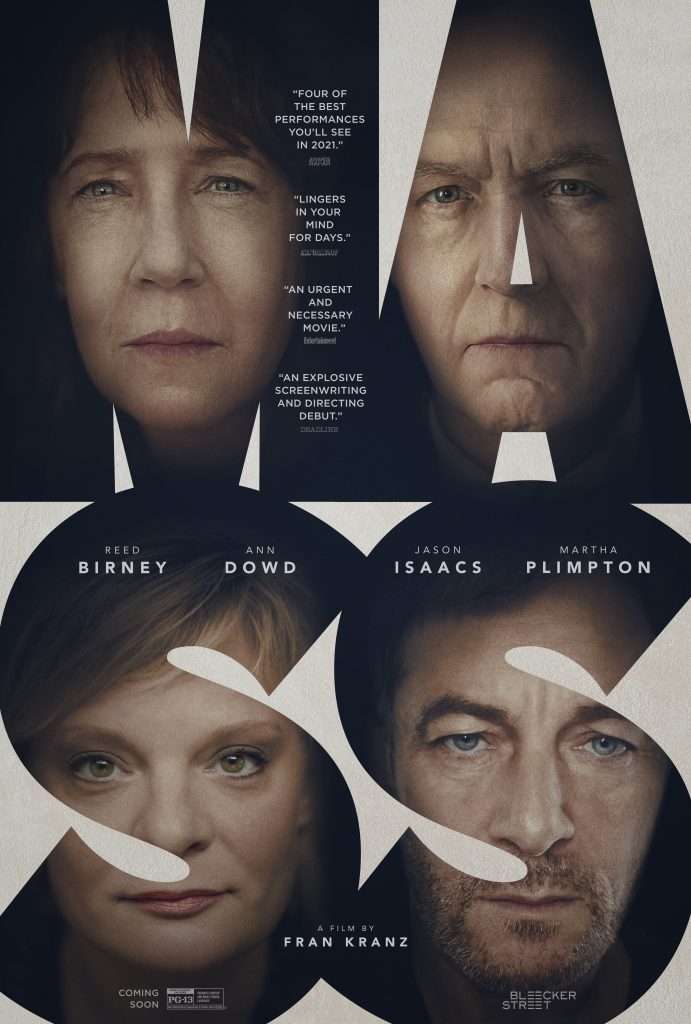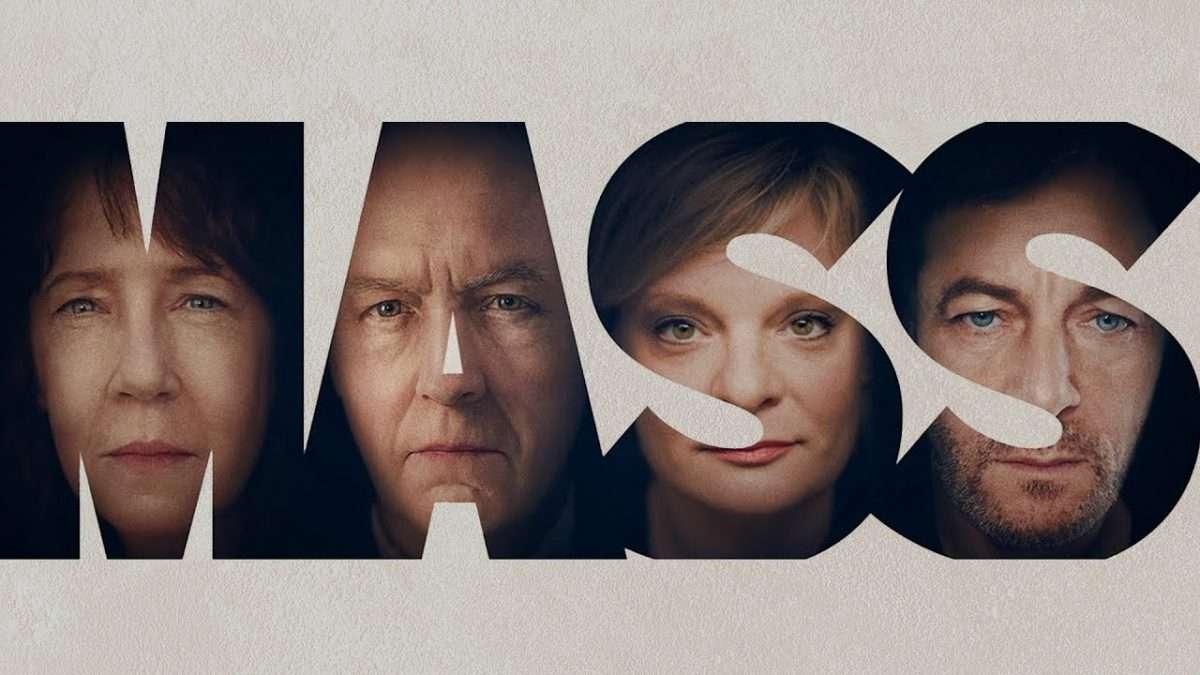An important and raw conversation is about to take place in a local church. The film opens at a church with one of the key leaders arriving and preparing a room downstairs with a table and chairs. Based on the setup alone, we understand there’s pressure to ensure the room is set up correctly and perfectly, even though viewers are not advised what is about to occur. Jay (Jason Isaacs) and Gail (Martha Plimpton) enter the room first, requiring a moment together to prepare themselves for what is about to occur. Next to walk in are Richard (Reed Birney) and Linda (Ann Dowd). Both couples exchange small talk, but it’s evident that the room feels awkward and tense. Now the door is shut, and the four start a conversation reliving a horrific, painful, violent moment in time.
As you can probably tell, Mass is best described as a heavy drama. Given the style and plot outline, the film is incredibly dialogue heavy and almost feels like a stage play that has come to life on the big screen. This is a directional debut by Fran Kranz, who has previously acted in many well-known projects, including the TV series Dollhouse and the fun horror film Cabin in the Woods.

Right from the word go, viewers understand that something important is about to occur as the church member is stressed over positioning even the smallest items. Once both couples arrive, viewers are taken on a journey through the past and present surrounding a mass shooting. Jay and Gail have burning questions and a desire to understand better what happened on the day. More than that, they hope to gain some type of freedom from this tragedy and their present suffering.
Naturally, given the talent on-screen, there are some incredible performances here, especially from actors Jason Isaacs and Ann Dowd. Both of these actors truly surprised me with the delivery of their characters. The film is dialogue-heavy, and some moments consist of lengthy monologues, creating a stage play-like feel. The story is gripping, and once viewers gain a greater understanding of the situation, it’s easy to become invested in both couples and emotions as they share their perspectives. Both couples share compelling points of view that always feel convincing, touching, and raw to the bone, leaving viewers in awe and silence. Pacing, for the most part, is great, and upon my first viewing, I didn’t feel the almost two-hour runtime because I was so involved in all the drama.
For the most part, the filming style is great, especially in the first act. Moments of tension and line deliveries are all captured wonderfully, and there are shots here that truly allow actors to shine as they deliver heartfelt moments of either frustration or hurt. However, around the second act, I found the filming style became questionable as the camera at various times was shakier, bumpy, and lacked smooth focus during key moments, including when characters were speaking. Perhaps, this style was done to show the conversation had suddenly become more heated and dramatic, but as a viewer, I found this sudden change in camera work highly distracting, disappointing, and unnecessary. Thankfully, this changes again as the story heads towards the third act and finale. The ending also carries one or two moments that feel ever so slightly vague, but this is minor as the main conclusion ends strongly and clearly and is highly impacting.
Overall, delivering a powerful and touching story about tragedy and loss, Mass shines strongly with unforgettable performances and a touching, gripping, excellent script. Pacing for the majority is also great. Even though it’s dialogue-heavy, I found myself highly invested in the four leads and passionate about knowing the outcomes and the finer details relating to the past situation. As a directional debut from Fran Kranz, there’s a lot to admire here, and the achievements are most certainly admirable and applaud worthy.
8.5/10
27th August 2022
Written by Peter Walkden




WALKDEN ENTERTAINMENT
PODCASTS ARE AVAILABLE!



0 Comments